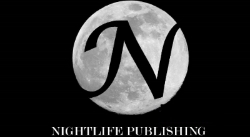It is easy to lament the state of modern romance (See This Is How We Date Now). We can look at dating apps and claim romance is dead. We can point to the abundance of our digital connections as the reason behind our collective personal disconnection. We can point to the illusion of social media and blame it for the one sided portrayal of the relationships we manage to have. But these protests are short sighted because they ignore a basic reality of sexual expression.
It’s true many of us in the twenty first century can find a potential partner in the same way we can order pizza. Couples on dates do spend a disturbing amount of time staring at their phones instead of each other. Most online relationship narratives only show the happy moments. Life and love were so much better before social networks, smartphones and apps, right?
Society has created multiple methods to bring people together throughout history. Arranged marriages, matchmakers, church groups, social mixers and random encounters in bars and clubs pre-dated Tinder and Match. Did they produce better results?
People who did get together spent a lot of time apart. They might be separated physically because of work and travel, or they might be mentally separated staring at the TV all night. Were those romantic droughts preferable to smartphone staring?
The interpersonal problems we had were covered up in public with banal conversation and elaborate lies. Emotional release was satisfied by professional courtesans and concubines for the rich or amateur infidelity for the poor. Some people just suffered in silence, drowning their sorrow in liquor or lashing out at the people around them. Why is that life better than the one we have now.
Technology has changed the details of our romantic encounters, but it has not changed the fundamental process. It has made it easier for us to connect and disconnect, but has not altered the art of seduction. We now have the ability to find people to love, but most of us still don’t know how. Technology isn’t the problem. It’s the people who use it.
We have no collective skill in romance or love because most of us never get a seductive education. At a certain age, we’re pushed to be attractive, date, marry, procreate and repeat the process with the next generation with most people stumbling through every stage like a drunken monkey. It’s as if we were each given a gun and bullets and then told to protect ourselves without any instruction on the physical, mental, emotional and social impact of owning a deadly weapon. We are burdened with the expectation and responsibility to love with nothing more than the ignorant mantra of “it will work out if it’s meant to.”
It’s not as if the lessons of love don’t exist. Ovid’s Art of Love, the Kama Sutra, the Technique of the Love Affair and the Art of Seduction are only a small sample of the books devoted to romance. There are historical icons from Casanova and Ninon de l’Enclos and modern examples like Prince and Monica Bellucci today. But the education is hidden or rejected. The experts are either shunned or marginalized as unique or different from the rest of us. But romantic fulfillment isn’t a product of apathy, apps or astrology. It comes from intelligent effort, focused attention and constant communication.
I left the open dating world before apps went main stream, so I only have an observer’s perspective on the current state of affairs. I’ve been in love for five years now with a woman I idolize and adore. We share affection, communication and understanding I appreciate but never take for granted. I still try to attract and impress her because I’ve made the personal decision to continue and enhance our romantic relationship. In spite of the dire predictions, romance isn’t dead. It can’t be killed by society or technology. Romance is simply rare and it only lives and thrives with inspiration and effort.
Have fun.
Gamal







